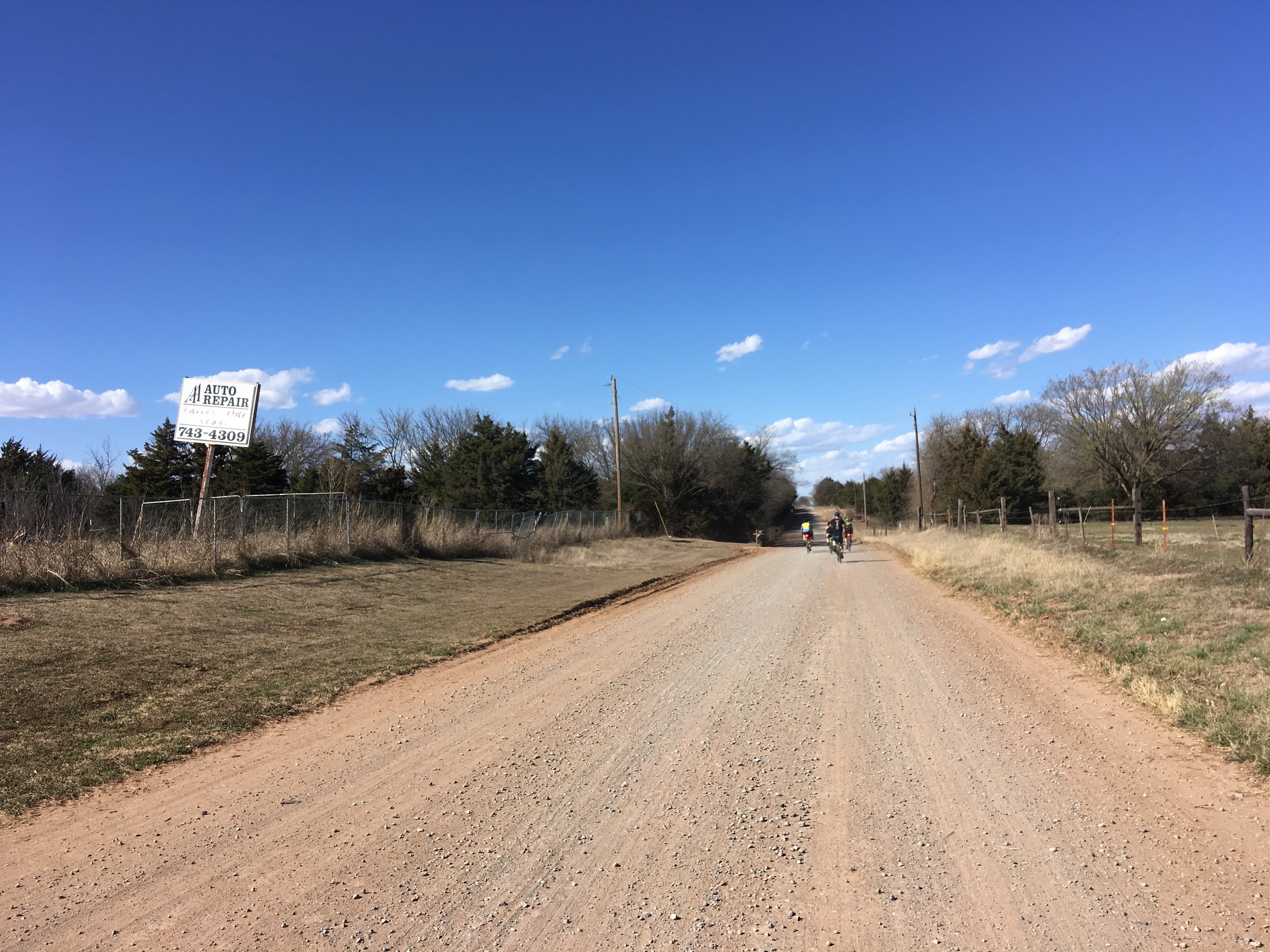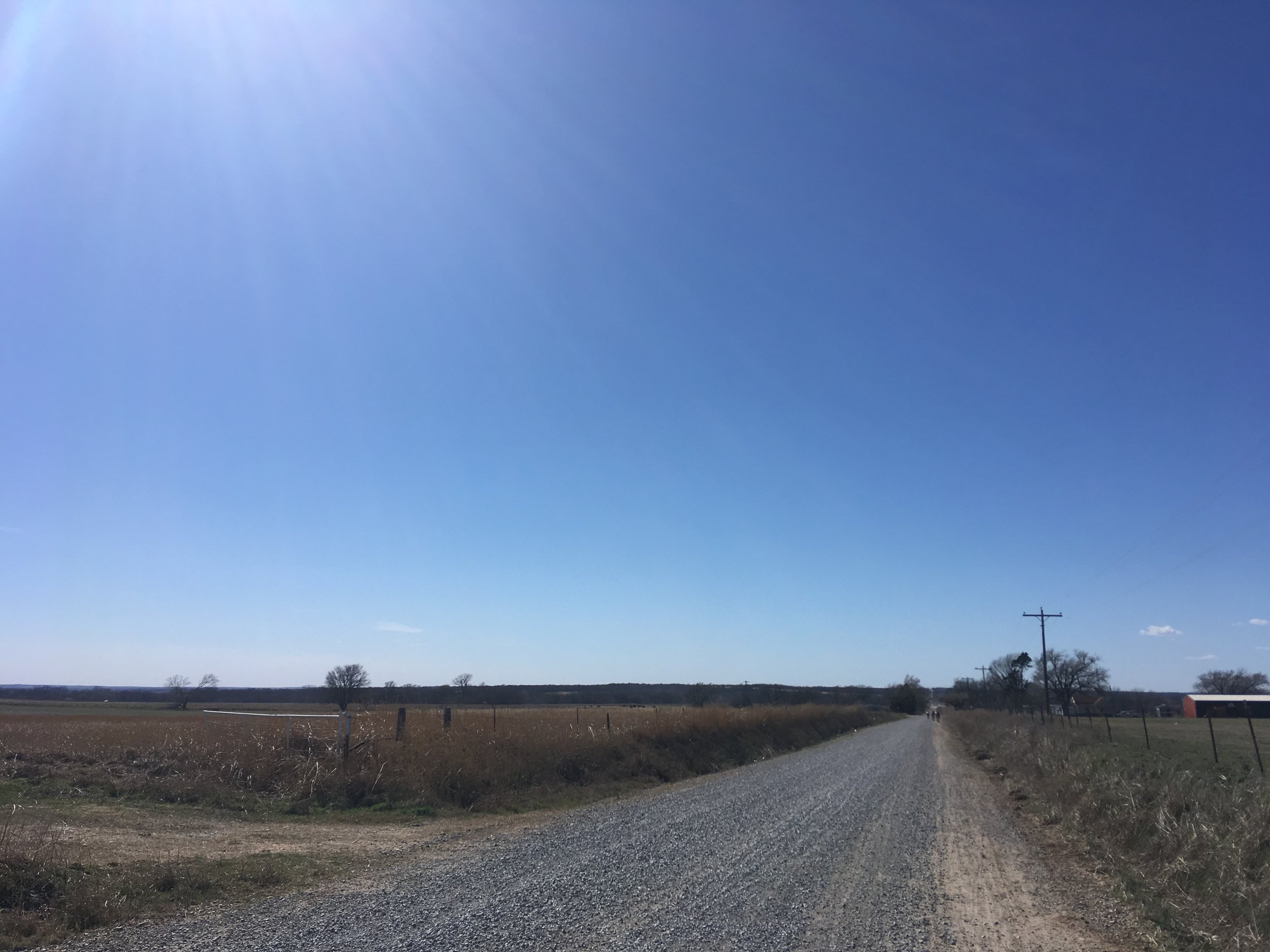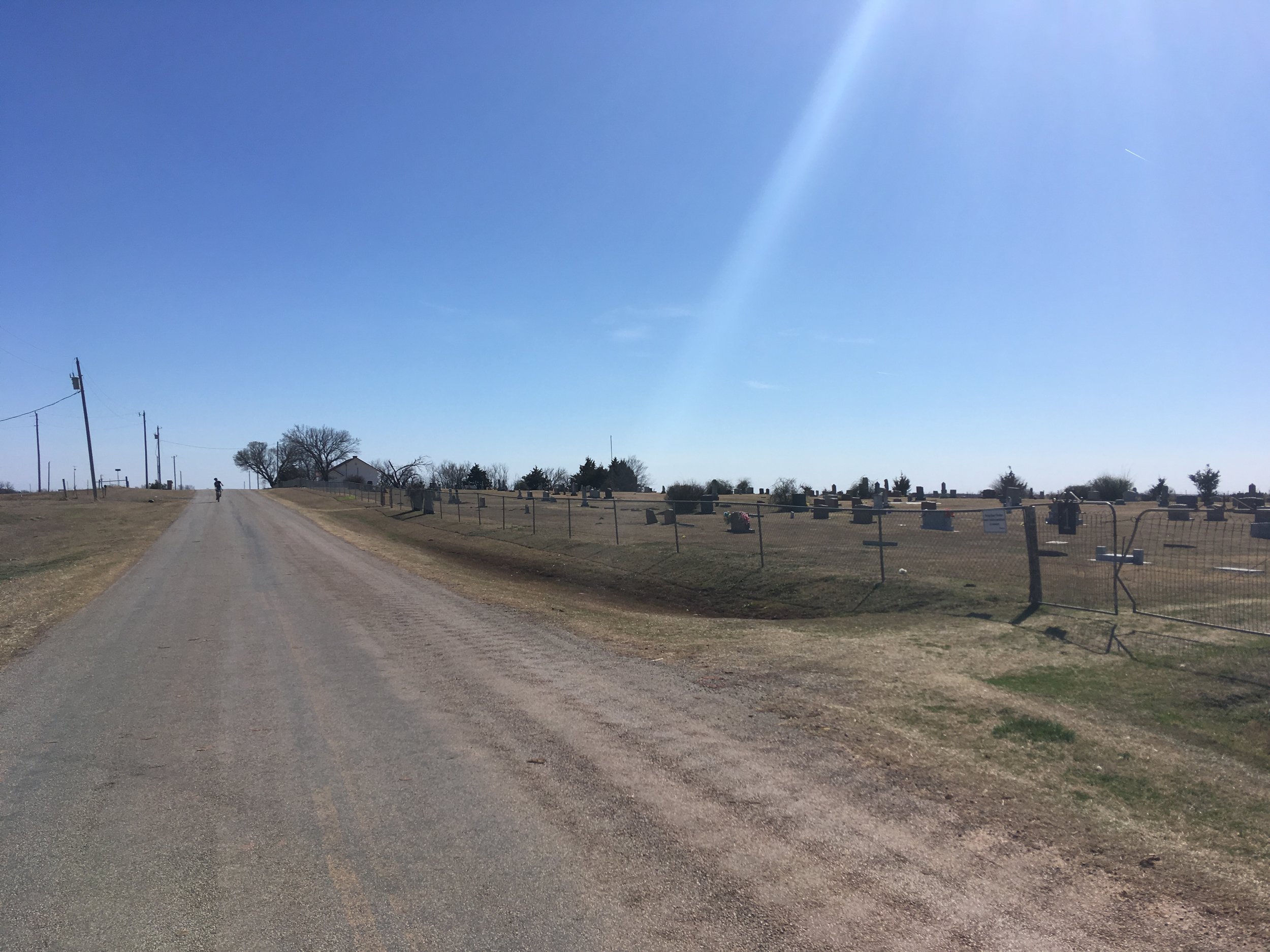The Value of Difficult Things; The Land Run 100
Yawp Cyclery
After last year's Land Run 100, I vowed never to return to Oklahoma. It was the most difficult ten hours I'd ever had on a bike, and while I didn't know it at the time, I inflicted some permanent damage on my left hand. Ten hours is a relatively short period of time, but it was a sodden and freezing cold period during which time itself became an un-deliniated substance, thick as taffy in a puller, folding endlessly back upon itself. I've tried to describe what that day in 2017 was like (here), but the images in Salsa's short video are a good visual representation.
Not long after registration opened for this year's race I signed up. Why?
The drive alone--ten hours each way--is its own kind of monotonous, boring hell. Even the brightest, cleanest gas stations and truck stops can be depressing, like the one in Kansas where I witnessed a man very publicly threaten to strangle his eight year-old son in a way that I could not interpret as metaphorical while the rest of his family stood frozen in a tableau around the soda machine, afraid the t-rex would see them if they moved. Cruelty, obviously, is depressing, as is a truck stop full of uncomfortable bystanders who are impotent in the face of cruelty because they aren't sure whether it's their business to intervene. This particular scene sent me spiraling downward because we human beings are often a lot more similar than we might wish, and it's easy to imagine that this angry father is conflicted about his behavior in the same way that I am conflicted about some of my own behavior. Most of us, I think, wish we were better than we are. That thought breaks my heart.
Speaking of hell, the Land Run itself can be like the fifth circle of Dante's Inferno, with participants wading through the river Styx's muddy swamp with bikes over their shoulders. So why did I sign up to do this race again? I don't know. That not knowing confuses me, and it highlights a question that's nagged me persistently these past few months: why do people do things on their bikes that are incredibly difficult? For some people, that might mean the seven-mile climb up Lookout Mountain, and for others the Tour Divide or the Iditarod--the difficulty is relative to one's own ability. Many of us seem compelled to explore our limits while being unable to explain why.
The weather for this year's Land Run was mercifully mild, and the gravel was not a 7-layer peanut butter cake. Because I have no muddy carnage to present, all I have is this question to try and answer. Pull up a couch and let's hash(tag) it out.
A majority of my bike rides are quite pleasant. I ride to work. Rebecca and I ride across town to drink beer, or we ride mountain bikes for a couple of hours with our friends. These are the kinds of rides that get me through the week, and in which I hope to partake for the rest of my life--to which bicycles add a healthy mix of exercise, nature, good people, beer, and Mexican food. The Land Run and other long events are something else. Sometimes we call them sufferfests, but in other parts of my life I am careful to avoid suffering, so there must be something else going on.
That's not to say there's no suffering involved. At the end of this year's race, as I drank my recovery beer and watched others come across the finish line, I witnessed a few things that sum it up pretty well. A big, bearded fella finished, came to a stop and, statuesque, received his hug from Bobby without much reaction. He kept standing there as other racers filed past him. A minute or two later he bent over his handlebars and quietly wept. Even when the roads are dry the Land Run is hard.
A struggle of that intensity flays you, and you find yourself at mile sixty or seventy without any energy, opinions, memory, ideas, courage, or thoughts. There is only despair. But if you allow yourself to taste that despair, you'll break down and never finish. All you can do is ignore the despair and push on, which reminds me of yet another quote from yet another Becket novel. "You must go on. I can't go on. I'll go on."
So yes, there is suffering involved. Yet I witnessed a lot of other things at the finish line. Relief. Exuberance. Shock and awe at having actually completed the thing. People told all sorts of astonishing things to Bobby; many people became emotional as they whispered into his ear about overcoming all sorts of things, about riding for loved ones who were ill or no longer with us. For many, the ride was an Odyssey.
Herein lies the value of doing hard things.
If you have done the Land Run, or another long, arduous bike ride, and if you have said to yourself, "I can't go on. I'll go on," then you know that asking yourself to be better is not asking too much. You have stood in the pouring rain without anything left, without any personality or ego or even so much as your own name, and you have somehow put foot upon pedal and gone on and gone on and gone on. You can ask yourself to be compassionate when you don't want to be, to turn off the teevee if you have something important to do, to not threaten violence upon your child in a truck stop (or anywhere).
It's cruel that we're so often unable to be who we want to be, but there is every reason to keep trying. If you can refuse to quit a bike race, you've no excuse to quit on yourself.
If it's possible for this post, which is already too serious, to get even more too serious, let's talk for a minute about the graveyards we passed along the way. I can't remember how many there were. Two? Three? One of them was called Paradise. A graveyard called Paradise is essentially the same thing as a college bar called The Library--it saves a lot of tricky explanation when your roommate's parent calls and asks, "Where's Johnny?" and you can respond, "He's at the Library."
Anyway, what I want to say about graveyards is that it's good to think about them. There's an app modeled after a Bhutanese saying that to be truly happy you must contemplate death five times per day. The app is called We Croak and it will send you five notifications per day. It may sound morbid, but here's an example of a notification you might receive:
If I can stop one heart from breaking, I shall not live in vain. --Emily Dickinson
That's not a bad thing to contemplate.
To put too fine a point on it, thanks to last year's Land Run a part of me is dead already. This is happening to all of us, and all too soon. In the middle of the Land Run, in the midst of struggle, it's good to look over at a graveyard and remember that the struggle is a privilege, and is revocable.
Okay.
That was a bit of a bummer. If you're for some reason still reading, let's get on to party hats and Irish Whiskey.
There were many things about this year's race that were different from last. I could see the landscape. Spring carpets of vibrant green and purple lined the roads, and gave way to peaceful, rural farmland. It was a lemonade and wind chime kind of day.
It was also St. Patrick's Day.
A lot of people go to bike races because they like competition. I'm not fast enough to compete, so I have to focus on something else. I'm going to borrow an analogy from a book called The Elephant in the Brain about redwood trees.
Redwoods are the tallest trees on earth, and they got that way because they compete for sunlight. Trees that don't grow as high as the others don't get enough light, can't eat, and don't survive. If trees could work together, they might sit down and decide that this competition wasn't really benefiting them as a species, and they might decide to cap growth at 100 feet and spend all of that extra energy on producing pine cones instead, thereby expanding the forest.
People are unique in that we can decide how to spend our resources. This is what makes the Land Run special. Whether you come to compete or not, you are encouraged, supported, and respected equally. Everybody gets a hug for finishing, not just the top twenty. The good folks at District Bicycles run an event that's professional and well-organized, but also fantastically warm and hospitable. This is a forest that's growing outward.
Right here and now I'm making a vow never to return to Oklahoma. At least until next year.













